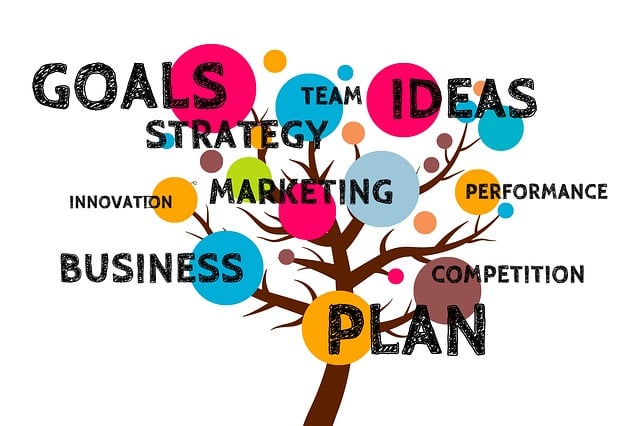Social media campaign tools are essential for successful influencer collaborations, offering streamlined content management, improved communication, and robust analytics. These platforms enhance brand visibility, foster audience connections, and drive sales through data-driven strategies, automation, and structured contracts. By leveraging these tools, brands can maximize reach, engagement, and conversions throughout the sales funnel.
In today’s digital landscape, social media campaign tools have become indispensable for influencer marketing. This article explores effective strategies for collaborating with influencers, leveraging essential tools that streamline management, communication, and contracts. We delve into analytics and reporting features, enabling you to measure success and optimize future campaigns. By understanding these components, brands can harness the power of influencer collaborations to drive engagement and achieve marketing goals.
- Understanding Influencer Collaboration Strategies
- Essential Tools for Efficient Campaign Management
- Streamlining Communication and Contractual Agreements
- Measuring Success: Analytics and Reporting Features
Understanding Influencer Collaboration Strategies

In today’s digital landscape, understanding influencer collaboration strategies is paramount for successful social media campaign tools. Brands are increasingly leveraging influencers to promote their products or services, aiming to tap into the vast audience and trust that these content creators have cultivated. A well-designed strategy involves careful selection of influencers whose values align with the brand, creative content planning that resonates with followers, and effective measurement using marketing analytics. By integrating these elements, brands can maximize engagement, build genuine connections, and ultimately drive sales through influencer collaborations.
The right social media campaign tools facilitate this process by streamlining customer relationship management (CRM) and providing insights into campaign performance. These platforms enable marketers to track key metrics, analyze consumer behavior, and optimize their strategies in real-time. Moreover, they facilitate seamless communication with influencers, making it easier to coordinate content creation, set expectations, and monitor progress. As brands delve into these collaborations, leveraging the right tools becomes a game-changer, transforming chaotic efforts into structured, data-driven marketing strategies that enhance brand visibility and drive conversions along the sales funnel.
Essential Tools for Efficient Campaign Management

When planning and executing influencer collaboration campaigns, efficient social media campaign tools are essential for managing every aspect seamlessly. These platforms offer a wide array of features designed to streamline processes such as content creation, scheduling, analytics tracking, and communication. The right tool can help brands establish clear lines of communication with influencers, ensuring that campaign goals are met effectively.
Among the must-have social media campaign tools are customer relationship management (CRM) systems that facilitate better interaction and data organization. Marketing automation platforms also play a crucial role in scheduling posts, managing multiple campaigns simultaneously, and personalizing content to resonate with specific audiences. Furthermore, integrating an AI chatbot can enhance customer support during campaigns, providing quick responses to inquiries while freeing up time for campaign managers to focus on strategic tasks.
Streamlining Communication and Contractual Agreements

Effective communication and streamlined contractual agreements are vital aspects of successful influencer collaboration campaigns on social media. Traditional methods often involve lengthy email exchanges and manually drafting contracts, which can be time-consuming and prone to errors. However, leveraging specialized social media campaign tools offers a game-changer solution. These platforms provide automated templates for contracts, ensuring consistency and minimizing the risk of oversight.
With integrated marketing analytics, influencers and brands can track communication history, set clear expectations, and outline performance metrics within the same platform. This streamlined approach not only enhances efficiency but also fosters transparency throughout the collaboration process. Marketing automation features further optimize the workflow, enabling quick responses to inquiries and efficient project management, ultimately leading to more productive partnerships.
Measuring Success: Analytics and Reporting Features

Measuring success is a vital aspect of any social media campaign, especially when collaborating with influencers. The right tools offer in-depth analytics and reporting features that allow marketers to assess the impact and ROI (return on investment) of influencer campaigns effectively. By tracking key performance indicators (KPIs), such as reach, engagement rates, click-throughs, and conversions, brands can gain valuable insights into what strategies are working and where improvements can be made.
Social media campaign tools often integrate marketing automation and CRM (customer relationship management) functionalities to streamline the reporting process. Automated analytics dashboards provide real-time data visualization, enabling influencers and marketers to make data-driven decisions promptly. Moreover, text message marketing integrations within these platforms facilitate two-way communication, allowing for quick feedback collection and audience engagement, ultimately contributing to the overall success of influencer collaboration campaigns.
Social media campaign tools are indispensable for successful influencer collaboration campaigns. By leveraging essential tools for efficient management, streamlining communication and contractual agreements, and utilizing robust analytics and reporting features, brands can navigate the dynamic world of influencer marketing with ease. These strategies ensure measurable outcomes, fostering meaningful connections between influencers and their audiences, ultimately driving engagement and brand awareness.
